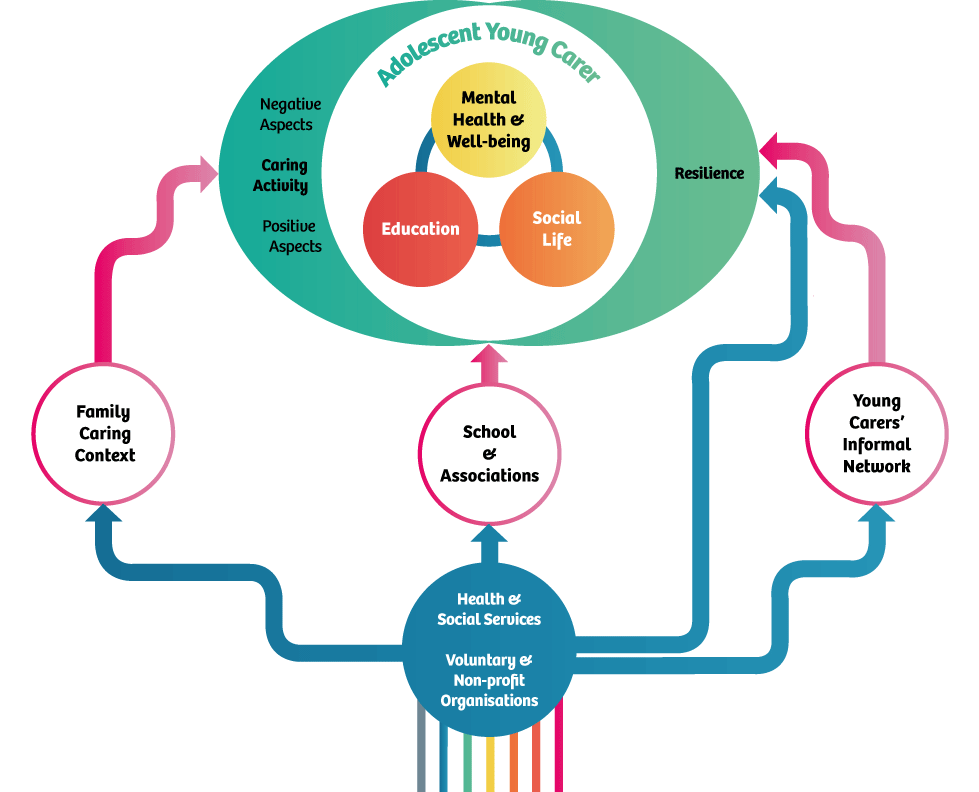The goal of Me-We is to strengthen the resilience of adolescent young carers in order to impact positively on their mental health and wellbeing and to mitigate the negative influence of psychosocial and environmental factors in their lives. We engage in this project together with 9 partners from different European countries.
Objectives of Me-We
- Systemize knowledge on adolescent young carers (15-17 years old).
- Co-design, test and deliver psychosocial intervention in 6 countries.
- Evaluate what works and provide knowledge translation actions at national, European and international level.
Who are young carers?
Young carers are children and young persons under 18 providing significant or substantial care, assistance or support to family members who have a disability, suffer from chronic illness, mental health problem or other conditions connected with a need for care. They assume a level of responsibility that would usually be associated with an adult.

Why is Me-We necessary?
This project is needed because taking on caring tasks without being prepared and in parallel with other developmental patterns (education, social life, personal identity) can lead to a situation of severe burden, with consequences for adolescent young carers’ mental health and wellbeing. Moreover, the lack of appropriate support at a transitional phase of their life – between education and employment – may jeopardise their educational and professional attainment and, ultimately, their life chances.
Funded by the European Union
Me-We is an ambitious research and innovation project, funded by the European Union under the Horizon 2020 Programme. Participating countries are Sweden, Slovenia, Italy, the Netherlands, Switzerland and the United Kingdom. Other organisations engaged in this project are: Linnaeus University (lead partner), Eurocarers, University of Sussex, Carers Trust, Kalaidos University of Applied Sciences, National Institute of Health and Science on Ageing, Anziani e non solo, University of Ljubljana and the Netherlands Institute for Social Research.
